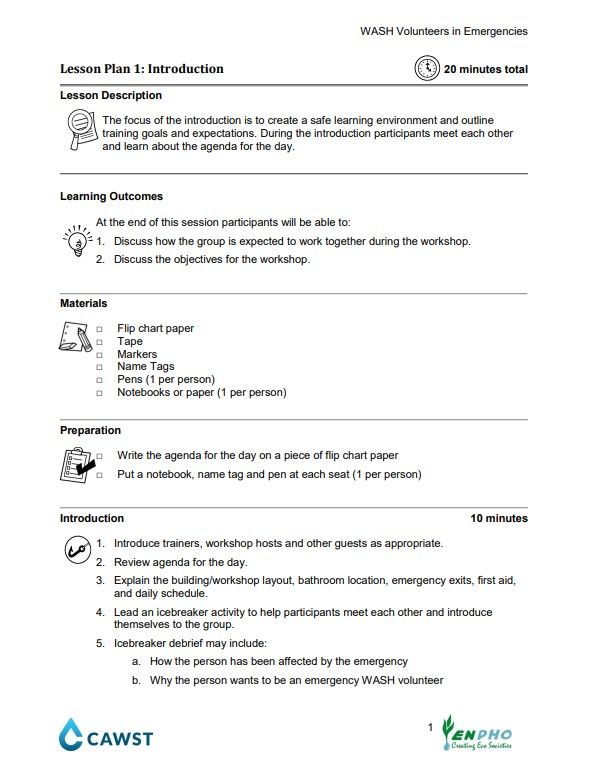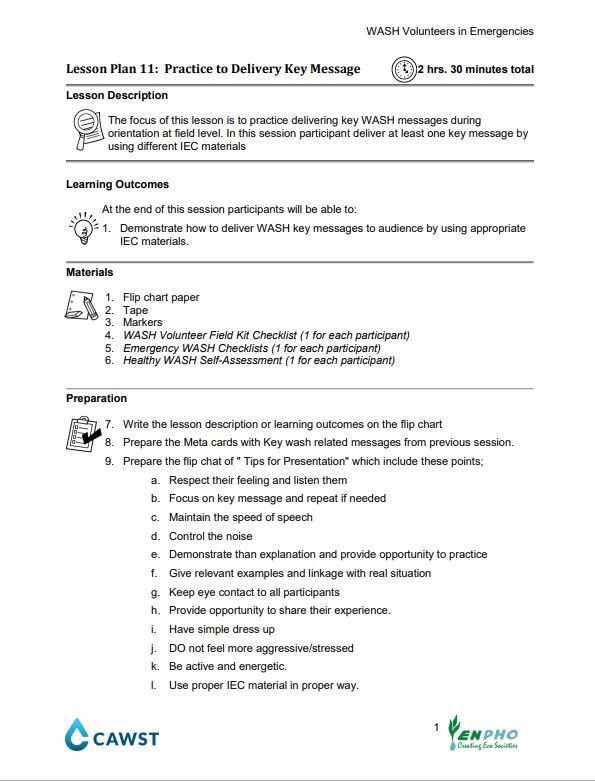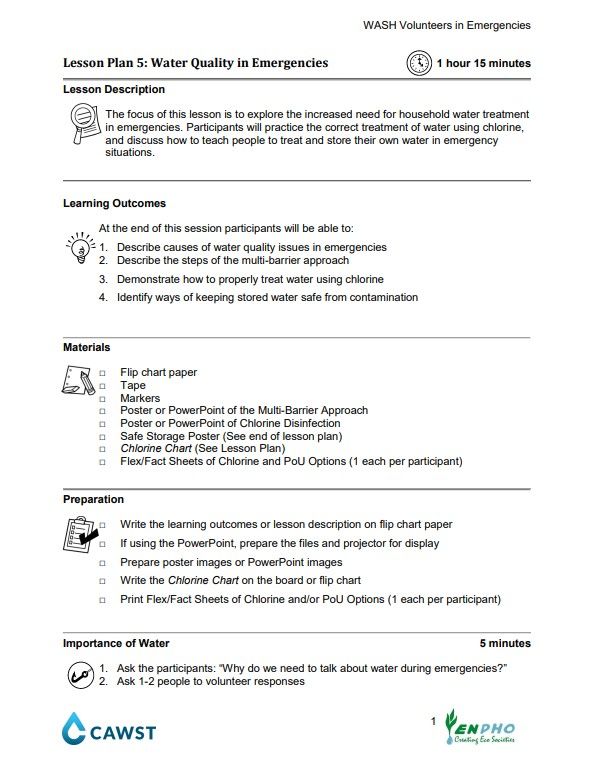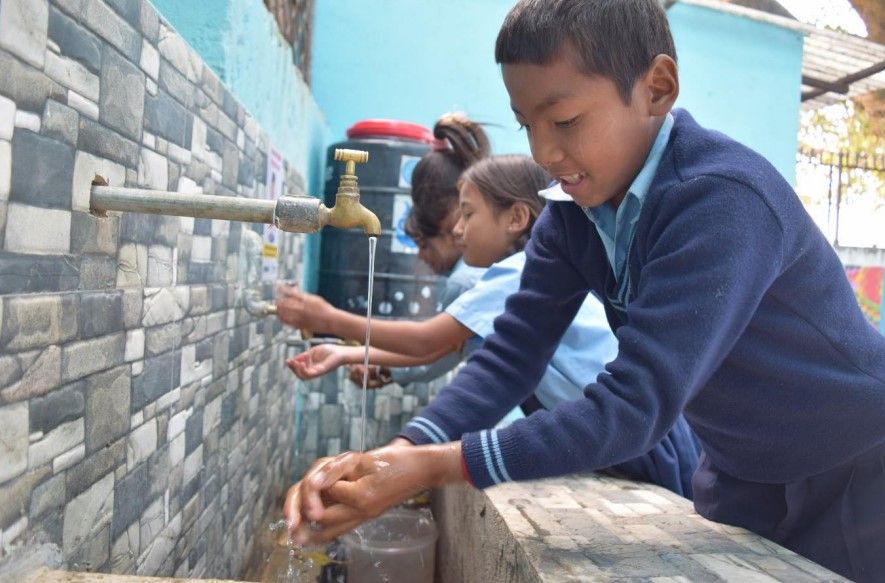This workshop gives participants the knowledge and skills they need to effectively communicate key WASH and health messages to populations in the acute stage of an emergency. During this workshop participants will build core skills for communicating with disaster victims and explore key WASH topics for populations affected or displaced by an emergency. After completing the workshop they will be able to effectively advise people on emergency WASH practices to keep themselves and their communities healthy and prevent the transmission of diarrheal disease.
In combination with this workshop, or as follow-up, a half day supplemental training session on cholera prevention can be delivered. This half day workshop builds on the knowledge and skills from the 2 day workshop to increase participants’ abilities to prevent the spread of diarrheal diseases during and after emergency situations.
Additionally, in the months following an acute emergency response, priorities, needs, and available resources may change. To meet these evolving demands during the recovery and reconstruction phase CAWST and ENPHO have created a supplemental 3-day WASH Volunteers in Emergency Recovery training workshop.










